Why are people in Ireland drinking less alcohol?
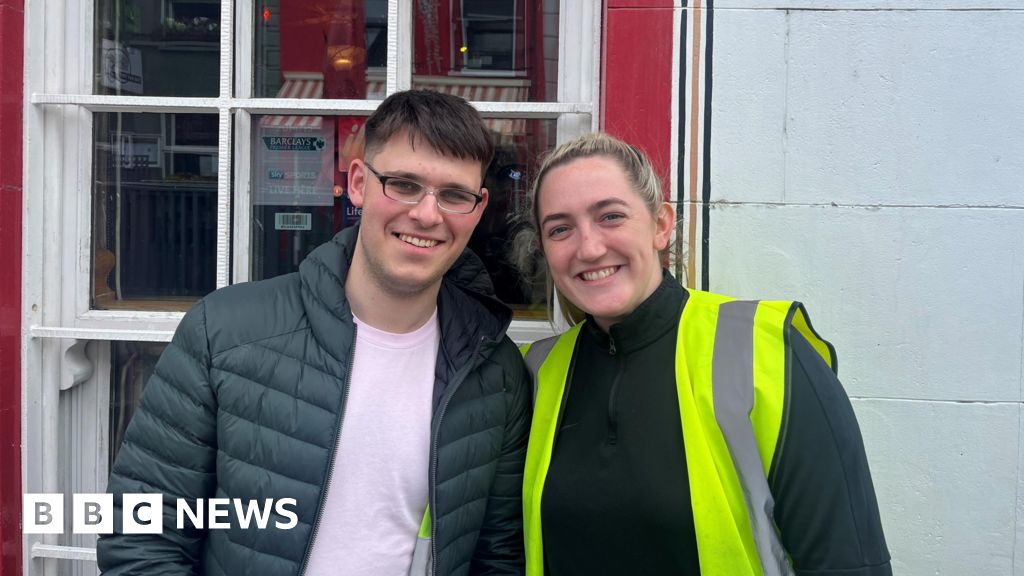
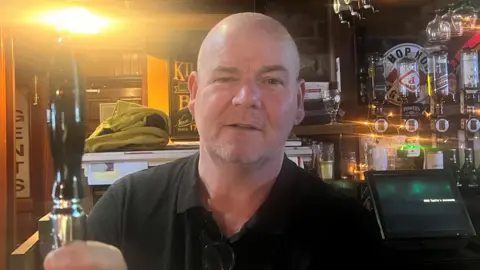 BBC
BBCBar manager Barry Reilly has noticed some significant changes in attitudes to alcohol in his time pulling pints in the town of Carlingford in County Louth.
“You would get boys coming in on a Saturday for two pints before going and playing a football match, you don’t get that now,” he told BBC News NI.
“People are more health conscious.
“Younger people have moved away from drinking due to this, they are more inclined to go to coffee bars and places like that.”
Figures show people in the Republic of Ireland are drinking less alcohol.
A report by the Drinks Industry Group of Ireland (DIGI) to calculate the 2023 average level of consumption found alcohol consumption in the country is down by almost one-third over the past two decades.
Since the peak of 2001, the average per adult alcohol consumption has declined by 31%, according to the report authored by economist and associate professor emeritus at Dublin City University Anthony Foley.
But why has it fallen?
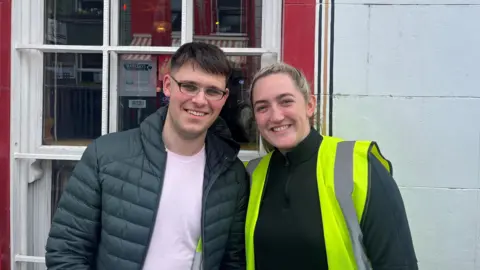
Mr Reilly’s belief that people have become more health conscious was one theory shared on the streets of Carlingford.
Other reasons put forward included work commitments, diet and health, price and the option of non-alcoholic alternatives as to why they think people are drinking less alcohol.
Georgia said she would have a drink at the weekend, but she has seen people in her social circles moving away from alcohol.
“One or two friends would drink the non-alcoholic beers when we are out,” she said.
Miriam said while she drank “a bottle a wine a week” with her partner, she saw more people drinking less.
“Our son drinks non-alcoholic beers for health benefits,” she said.
Decline in alcohol consumption over two decades
Beer is the most popular drink according to the latest figures, making up 42.9% of all consumption in 2023 and remains the highest despite a small decrease on 2022 beer consumption which stood at 43.5%.
Wine is the second most popular at 28.3%, spirits rank as the third with 22.6% and cider accounted for 6.2%.
“Overall, the long-term decline in alcohol consumption over the past two decades indicates that Irish adults are enjoying beer, wine and spirits more moderately,” a DIGI spokesperson said.
“We are not just consuming less alcohol, we are consuming differently with the rise in low or zero alcohol product consumption evident.”
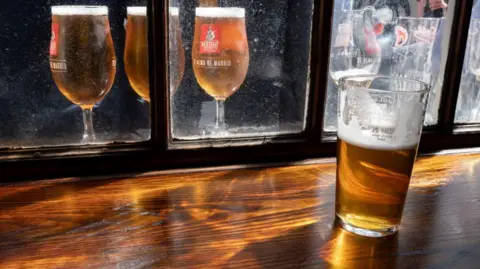 Getty Images
Getty ImagesAccording to a recent report from Ibec group Drinks Ireland, sales of non-alcoholic beer grew last year by 18%, as production surged by 50%, in response to rising consumer demand.
The representative group’s report showed that non-alcoholic beer’s market share was now over 2%, an almost 100% increase over the last four years.
This increase in the non-alcoholic beverages market in the Republic of Ireland is catching up with European averages and global trend.
In Spain, alcohol-free beer has reached nearly 14% market share.
At an overall EU level, 7% of beer (one in 14 beers) is a non-alcohol alternative.
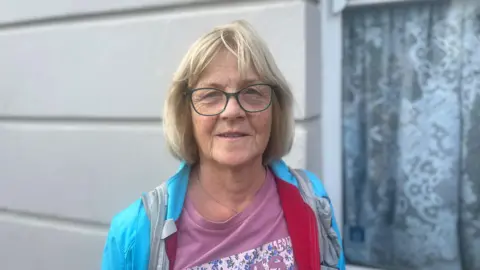
Mark told BBC News NI he was drinking less due to “getting older”, and while fewer people may go to bars, he believed more might be drinking at home.
Phillip told BBC News NI: “Drinking is more of a social thing. I used to drink non-alcoholic beers but my only problem is that they are not much cheaper than the ones with alcohol.”
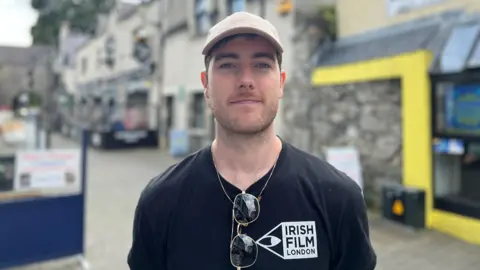
Lisa said she would only really drink while on holiday, highlighting the impact it can have on your health as the reason for her decision.
Jimmy told BBC News NI: “I have found myself drinking less for health reasons. I would drink non-alcoholic because I drive a lot.”
Matthew said he was “drinking less with “several occasions where I… drank non-alcoholic beers instead. Depends on where I am travelling from.”
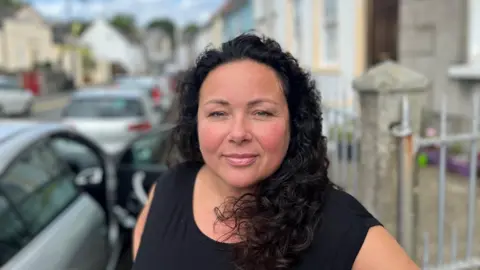
Increase in sales of non-alcoholic beers
Mr Reilly also said he had noticed an increase in the sales of non-alcoholic beers and consumer demand for them.
“I thinking people have been drinking less alcohol over the last two years for a few reasons, price is one and another is the choices of non-alcoholic beers.
“It is fast increasing.”
Aidan Baker, who also runs a bar in Carlingford, he said he had seen more people drinking non-alcoholic beer and he saw that as an opportunity.
“We are making our own non-alcoholic lager,” he said.
“We have a lot of tourists in Carlingford for the day so not everyone who comes in can drink alcohol so they might drink a non-alcoholic beverage.”
Related
Youth football teams hold minute’s silence for 10-year-old Poppy Atkinson
Youth football teams and grassroots clubs across the country have held a minute’s silence at the start of their games to commemorate a 10-year-old girl who di
Girl’s death sparks minute’s silence at football matches nationwide
10-year-old Poppy Atkinson was killed when she was struck by a car during a training session at Kendal Rugby Club in Cumbria. Clubs from Leeds to London
Liverpool fans’ Uefa claim can be heard in England, judge…
The high court, sitting in Liverpool, heard Uefa had relied upon the principle that English courts will not inquire into the legality of actions by foreign gove
Alan Shearer’s Premier League predictions including Manchester United vs Arsenal
Caption: Alan Shearer?s Premier League predictions credit: Getty / Metro After some impressive results for English sides in Europe the focus is













